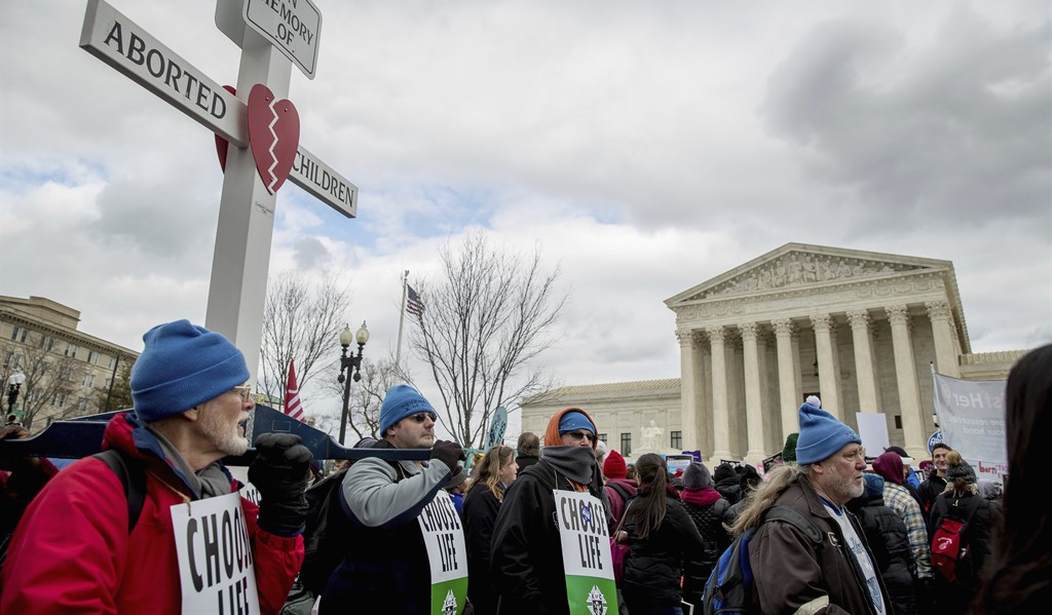Over the last few years, the pro-life movement has been quietly achieving victories around the country in multiple states. Unable to get anything done on the federal level due to Democrats in Congress, they’ve decided to focus on smaller, but winnable battles in state legislatures. Now, they’re expanding that to legal action within the states.
A novel approach is being tried in Alabama. Helen Light, a nurse, has filed a petition for a Writ of Mandamus with the Alabama Supreme Court demanding that the court order the state’s top officials to enforce Alabama’s 2018 constitutional amendment stating that a fetus is a person. If the court decides to require officials to enforce it, abortions can no longer be performed in the state. It will become a precedent nationally, that other states can look to.
The Alabama Supreme Court could refuse to accept the case. But that’s unlikely. First of all, it’s a pretty blatant conflict to ignore. The amendment asserts “the sanctity of unborn life and the rights of unborn children, including the right to life.” And it’s not the only place in Alabama law where fetuses are considered persons. In Alabama’s homicide laws, the 2006 Brody Act defines “person” as “a human being, including an unborn child in utero at any stage of development, regardless of viability.” The Alabama Supreme Court upheld this law in the case of Jessie Livell Phillips v. State of Alabama. There, the defendant was convicted of the intentional murder of his wife and their unborn child. The defendant unsuccessfully argued that the term “person” does not include an “unborn child.” So at this point, it will be difficult for the court to dodge its own precedent.
In addition, the chief justice of the Alabama Supreme Court, Tom Parker, is a strong defender of the unborn. He will be inclined to accept the case. In the Jessie Livell Phillips case, he wrote a concurring opinion where he called Roe a “legal anomaly and logical fallacy.” “In Roe, the United States Supreme Court, without historical or constitutional support, carved out an exception to the rights of unborn children and prohibited states from recognizing an unborn child’s inalienable right to life when that right conflicts with a woman’s ‘right’ to abortion,” Justice Parker wrote. “The judicially created exception of Roe is an aberration to the natural law and the positive and common law of the states.”
Recommended
Regardless of what approach the Alabama Supreme Court decides to take, one of the parties involved will appeal that decision to the U.S. Supreme Court. If SCOTUS refuses to accept the case, and the lower court issued the Writ of Mandamus, it still will remain a powerful precedent for other states and state courts to look to.
If SCOTUS accepts the case, there are two ways it could go. SCOTUS has never prohibited the states from protecting the preborn under their own state constitutions. Roe v. Wade merely said the 14th Amendment contains a right to privacy. So it would be a drastic step for SCOTUS to rule against the Writ of Mandamus, thus invalidating part of the Alabama Constitution. This would go well beyond Roe, obliterating the Tenth Amendment and ruling that states cannot protect the preborn. It would be saying that a woman’s right to privacy supersedes a preborn child’s right to life. The court said this balancing test changes throughout the three trimesters of a woman's pregnancy, with the government’s interest increasing toward the end of the pregnancy. Considering the conservative composition of SCOTUS, it is highly unlikely the court would rule to expand Roe like this.
So it is more likely that the court will validate Alabama’s constitutional amendment. It would not be necessary for SCOTUS to dismantle Roe. It could completely duck that contentious decision, making it easier to decide. But such a ruling would open the door for even stronger pro-life legislation to be upheld. States could pass constitutional amendments like Alabama’s and eliminate abortion in almost every circumstance.
Abortion is becoming abhorrent to more and more people in society as technology advances and it becomes increasingly obvious that a fetus is a living, breathing person. Abortion proponents can fight back all they want, but they are on the side of a losing battle. It’s just a matter of time. The tide has turned in conservative states and will ultimately move to the last bastions of resistance in blue states.

























Join the conversation as a VIP Member